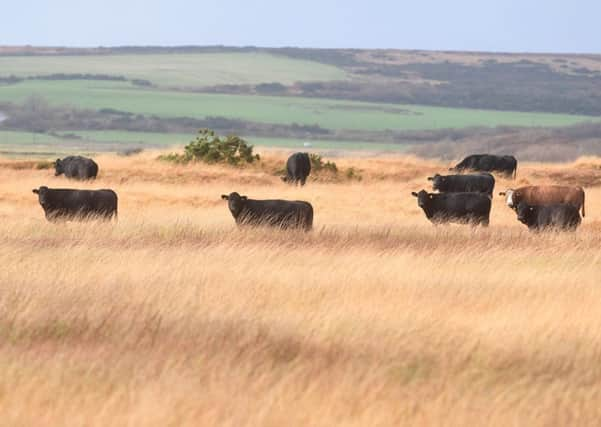How ‘farms’ that aren’t really farms get paid millions in subsidies – Andy Wightman


It is no exaggeration to say that Boris Johnson has his work cut out to persuade Scots that he has their interests at heart. If he does not listen to the advice of his own party leader in Scotland, what chance is there that he will listen to other voices in Scotland?
Mr Johnson is on something of a spending spree. He arrived in Scotland yesterday bearing gifts although the £300 million announced for Scotland, Wales and Northern Ireland was already under detailed discussion and is merely part of an ongoing programme of capital investment within the City Deals programme.
Advertisement
Hide AdAdvertisement
Hide AdIn his leadership campaign, he promised to transfer £160m of EU faming subsidies that, it is claimed, are due to Scotland as a result of EU policy to ensure that the new farming subsidies converge around the EU average. Such subsidies, called Basic Payments, are now paid on a per-hectare basis and because the UK received a lower than average rate per hectare, it received an uplift in its allocation of Common Agricultural Policy cash for 2014-20.
Scottish farmers, however, pointed out that the reason the rate per hectare was low across the UK had nothing to do with farmers in England, Wales and Northern Ireland and everything to do with the fact that Scottish farms are, on average, much larger than their counterparts in the rest of the UK.
Subsidies are unequally distributed in Scotland. About half is paid to less than ten per cent of farms, which are the wealthiest and most profitable, and it is their interests that have dominated Scottish farming politics for far too long. In 2018/19, farmers were paid around £260m in Basic Payments. An extra £160m would represent a massive increase but is it justified?
First of all, the argument that Scotland’s farms are large is misleading for two reasons. Some Scottish farmers historically leased thousands of hectares of poor quality land in order to claim subsidies whilst doing no farming – the so-called slipper farmers. The biggest of these “farmed” over 35,000 ha and received over £3m in subsidy.
Secondly, many of Scotland’s “farms” are not really farms at all. Huge sporting estates are included in the Scottish Government’s database of agricultural holdings – many owned by Scotland’s aristocratic landowners and some of the richest people in the world in offshore tax havens. Indeed, over 75 per cent of the alleged agricultural land is in holdings of over 200ha and owned by a mere nine per cent of farmers. It is a nonsense to claim these are working farms and deserve public money paid at a flat rate per hectare.
In fact, according to data from 2017, Scottish farm holdings receive the second highest subsidy payments per farm of all countries in the EU at over €30,000 compared with €20,000 for the UK as a whole and less than €10,000 for countries such as Austria, Spain and Poland.
The argument that this is Scotland’s money is an argument born of the close political relationship between the farming lobby and the Scottish Government. Its re-emergence is likely to be influenced by the new Secretary of State for Scotland, Alister Jack who, as well as receiving over £85,000 in farming subsidies in 2017, lobbied Michael Gove in October 2017 to hand over the convergence uplift monies to Scotland.
Advertisement
Hide AdAdvertisement
Hide AdIf this money is transferred, it will do little to promote healthy food, improved nutrition and tackle food poverty. Instead the £160m will most likely find its way into the pockets of those who already do very well out of a flawed system of agricultural subsidies.
Andy Wightman is a Green MSP for Lothian